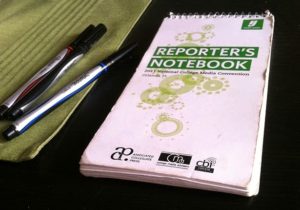Thirty-five years ago this week I began an amazing lesson in life and in the pursuit of my chosen craft. It marked my introduction to the politics of race and how some folks frame their public policy views on that basis.
I moved from a white-bread suburban community to a community that was — and still is — divided sharply along racial lines. Gladstone, Ore., is a nice town of about 15,000 residents. Beaumont, Texas, also is a wonderful community of about 120,000 residents. Gladstone is the white-bread town; Beaumont is divided roughly into equal parts white and black residents.
The week I arrived in Beaumont in early April 1984 to become an editorial writer for the Beaumont Enterprise was the week of a pivotal school board election. The federal courts had ordered the public school system to desegregate. Two school districts merged into one; one of the districts was mostly white, the other was mostly black. Voters had to elect a new school board that would govern the combined district.
That election also featured a referendum on whether to rename a major thoroughfare after the late Dr. Martin Luther King Jr. While many communities had honored Dr. King in such a manner, Beaumont had not yet taken that leap.
How did the election turn out? Voters elected a new school board that comprised an African-American majority among trustees; voters also narrowly rejected the street-naming referendum.
Talk about sending mixed message! Talk about the widest range of political emotion possible!
White residents were — by and large — filled with anxiety over the school board election results, while generally applauding the result of the street-naming measure. Black residents were thrilled to have elected a school board of mostly black trustees, while generally cursing the result of the MLK Jr. referendum.
I felt it daily. I heard it daily. I had little professional experience dealing with the politics of race. Yes, I had served in the Army with African-American soldiers, so I had grown to understand this basic act: We’re all human beings whose blood is precisely the same color. My introduction to the politics of race, though, told me how differently people of differing racial makeup view the world.
I grew quickly to understand those differences, although quite obviously I could not change my own racial makeup or tell my African-American neighbors that “I know how you feel.” Quite clearly, I did not know.
It all enlightened and educated me greatly. I believe I grew up significantly as I became more comfortable while learning about racial politics in my new community.
Here’s a punchline. Years later, the Beaumont City Council — virtually without warning — decided to rename a spur that runs north-south through the city after Dr. King. It acted while the city’s local black leadership was out of town attending an NAACP conference. The local NAACP president hit the ceiling. He was enraged. The mostly white City Council stuck to its decision.
The newly named Martin Luther King Jr. Parkway, I want to add, has been transformed into a beautiful thoroughfare. Beaumont’s black residents wanted to rename an established thoroughfare after Dr. King. They didn’t get their wish. They got something better.
We had departed Beaumont for the Texas Panhandle, so we didn’t get to witness the completion of the MLK Jr. Parkway. We have returned on occasion over the years. It’s a wonderful tribute to a great American.
